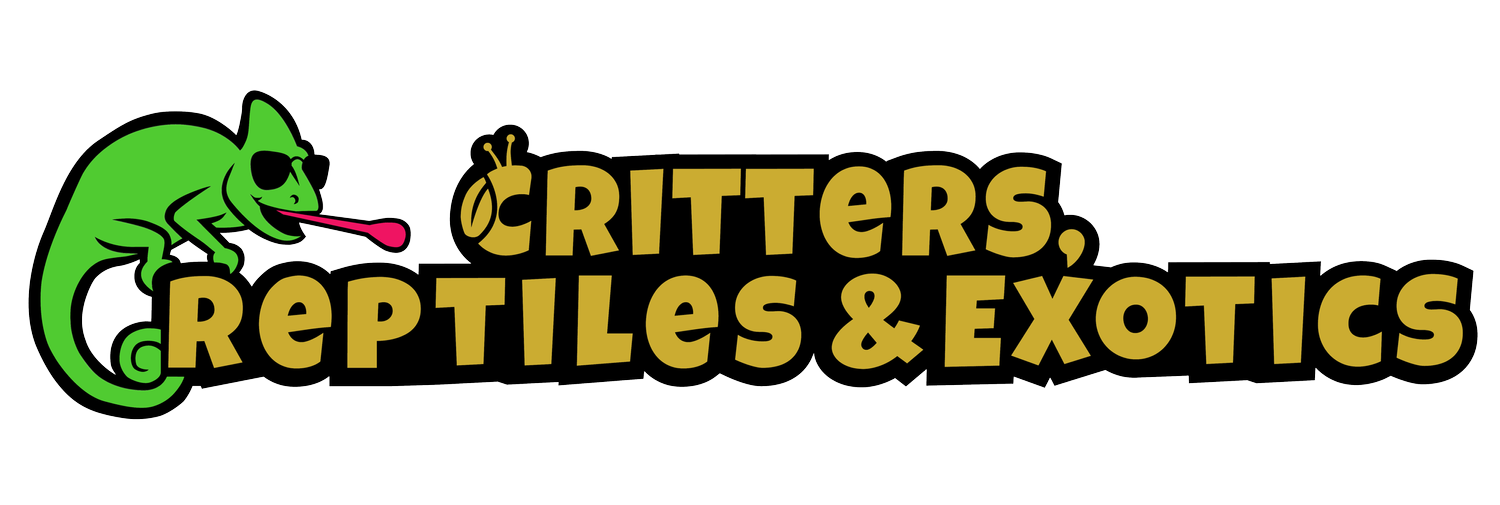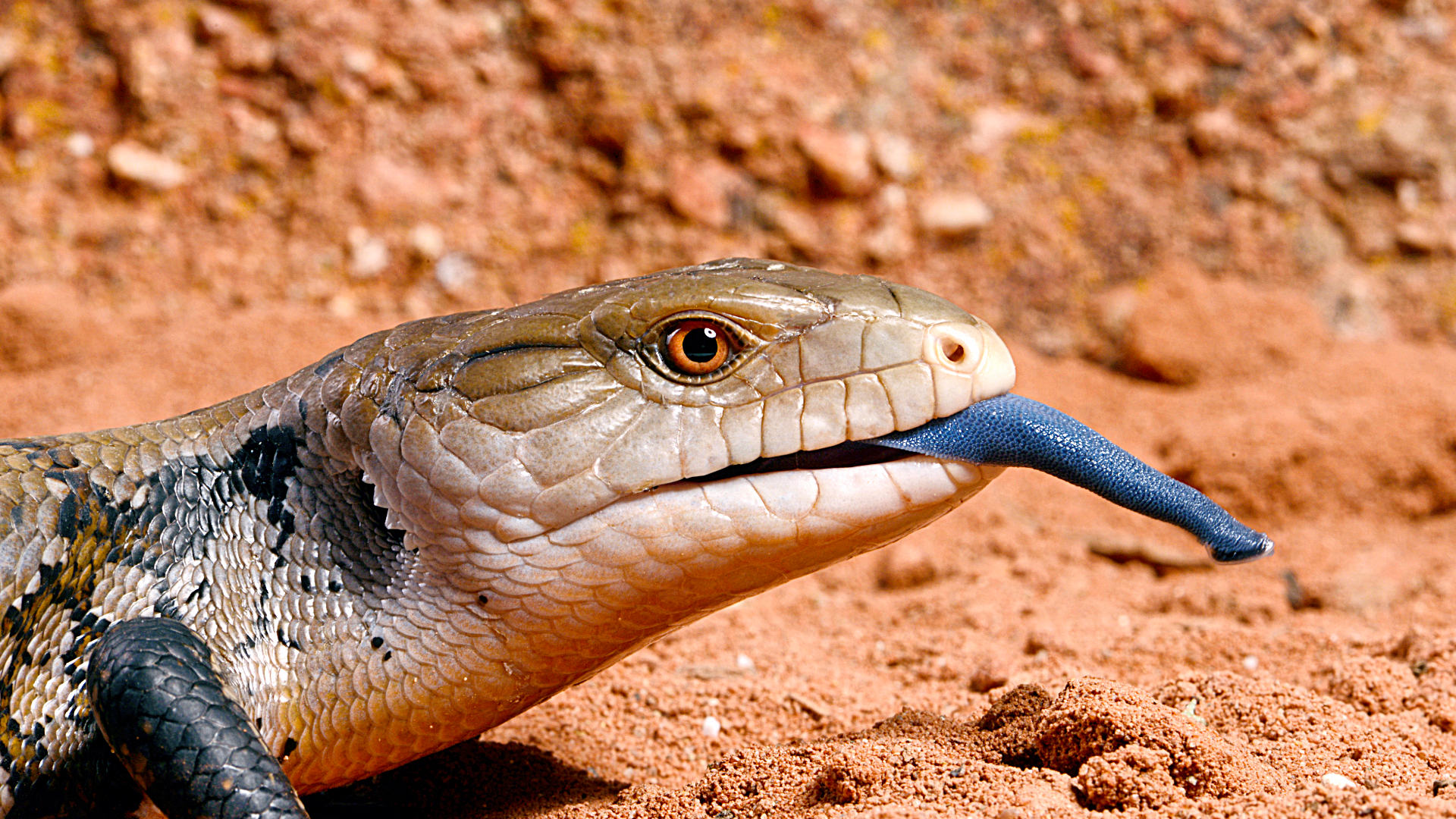Caring for your Indonesian Blue-Tongued Skink
Indonesian Blue-Tongued Skink
(Tiliqua gigas)
Basic Information:
The Indonesian Blue-Tongued Skink is a large, slow-moving lizard native to Indonesia. Known for its characteristic blue tongue, it typically grows to about 18-24 inches long. With a relatively docile temperament, this skink is an ideal reptile for beginners. They have a robust, stocky body and prefer ground-dwelling environments, where they can burrow and hide under logs or rocks.
Lifespan:
With proper care, the Indonesian Blue-Tongued Skink can live 15-20 years in captivity.
Sexing:
Males are typically larger than females and may have a broader head, particularly in mature adults.
Enclosure:
Juveniles: 20-gallon terrarium (24"x12"x12").
Adults: 40-55 gallon terrarium (36"x18"x18").
Provide a large space with plenty of hiding places and branches for climbing.
Substrate:
Use a mix of coconut fiber, organic soil, and sand for easy burrowing. Paper towels are acceptable for maintenance, especially in smaller enclosures.
Lighting & Temperature:
Basking Spot: 95-100°F.
Ambient Temperature: 75-85°F.
UVB Lighting: Use a 5.0 UVB bulb to provide essential UVB for 12-14 hours a day..
Humidity:
Maintain a humidity range of 40-60%, with occasional misting to promote hydration and ease shedding.
Food:
Indonesian Blue-Tongued Skinks are omnivores, with a diet consisting of fruits, vegetables, and insects such as crickets and mealworms. Offer variety to ensure balanced nutrition.
Water:
Always provide fresh water in a shallow dish, ensuring it’s replaced daily.
Supplementation:
Calcium with D3: Dust food 2-3 times weekly.
Calcium without D3: Use on alternating days if adequate UVB lighting is provided.
Multivitamins: Offer once weekly to support overall health
With proper care, the Indonesian Blue-Tongued Skink makes a fantastic and interactive pet, known for its calm demeanor and ease of care. Their unique appearance and personality make them a great addition to any reptile collection.
Calm, intelligent, and full of personality, Indonesian Blue-Tongued Skinks make fantastic pets for keepers seeking a larger, interactive lizard. Their engaging behaviors, hardy nature, and ability to thrive in a well-designed enclosure make them a long-term companion you’ll truly enjoy.
Is an Indonesian Blue-Tongue Skink something I can buy at a local pet store?
If you're visiting from Montgomery County, Maryland, stop by Critters, Reptiles & Exotics in Frederick, MD to check availability, ask questions, and explore habitat supplies. There’s always a new adventure waiting at Critters, Reptiles & Exotics!


